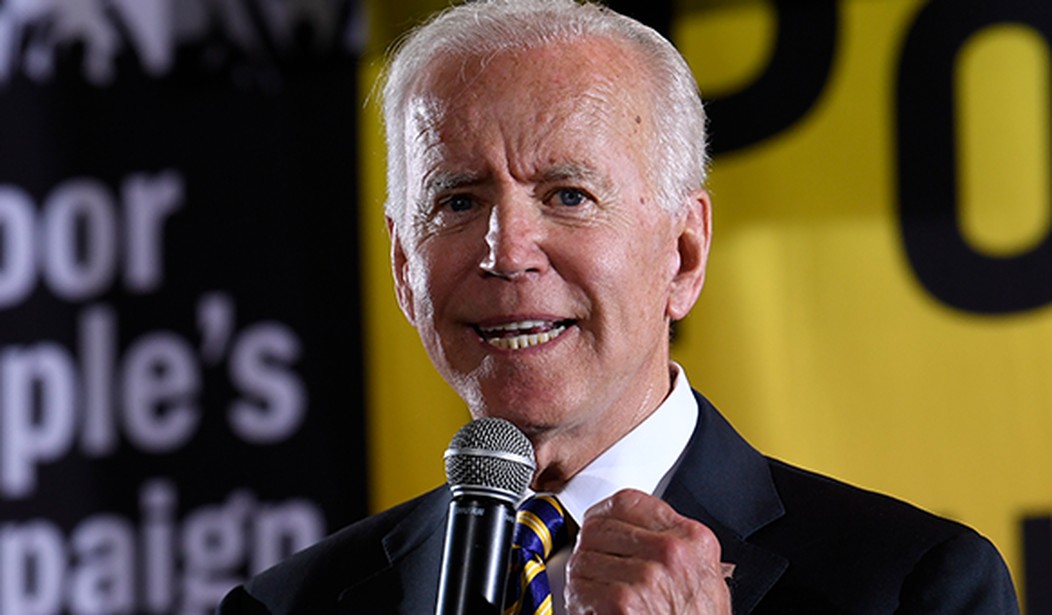Perhaps former Vice President Joe Biden and other Democrats should watch fewer James Bond movies. Biden announced at the Democratic presidential debates last week, “We should have smart guns. No gun should be able to be sold unless your biometric measure could pull that trigger. It’s within our right to do that.”
Biden isn’t alone. Democratic New Jersey Gov. Phil Murphy promises to soon sign a law mandating that each gun dealer in the state carry a smart gun, once one becomes commercially available.
Despite the promise that this innovation will prevent firearms from being used against their owners and reduce gun theft, this technology is more likely to endanger lives than to save them.
These “smart” guns use a fingerprint or palm reader — something akin to what is available on smart phones. Or they can utilize a radio signal from a wristwatch worn by the owner.
This proposal is nothing new for Biden, who headed up the Obama administration’s push for new gun control regulations. In 2016, he asserted that an “overwhelming majority” of Americans fully support “smart guns”. Biden claimed that this technology “could have gigantic payoff for us,” and proposed using federal grants to encourage police departments to adopt it. The idea was to prevent officers’ guns from being used against them.
In the five years from 2013 through 2017, 7 police officers were murdered with their own guns. This is slightly more than 1 per year, out of 670,279 full-time law enforcement officers. Those possible saved lives have to be balanced off against the risks from using these guns.
Recommended
Police have been less than thrilled about experimenting with these new types of guns. “We have some very, very serious questions,” said James Pasco, executive director of the Fraternal Order of Police.
Imagine police arriving on a crime scene and finding that their guns can’t fire, because of interference with the radio signals. The German-made Armatix iP1 has been jammed with radio waves and hasn’t proved useful in preventing theft as it was hacked with $15 worth of magnets.
Should police rely on fingerprint technology instead? The iPhone supposedly has state-of-the-art finger print scanners, but anyone who uses the device knows that the technology is far from 100% reliable. The phone won't unlock if your finger is positioned in the wrong way, or if it is slightly damp or dirty. For police, a few second delay may mean the difference between life and death.
Another problem is that the recoil from firing the gun can damage sensitive electronics. This is especially true of larger caliber guns. The gun that is currently available is a mere .22-caliber LR handgun and costs about $1,200, about $800 to $900 more than the cost of a similar gun without the “smart” features. But the .22-caliber LR bullet is much smaller than the 9mm ammunition used in typical police handguns, and packs a lot less stopping power, something that is valued by both police and civilians who are using a gun defensively.
Even if the price of these guns falls to the point of being only a few hundred dollars more costly than other firearms, the expense will be too high for many Americans. These laws will disarm the very people who are the most likely victims of violent crime — poor blacks living in high-crime urban areas.
But Democrats seem only too happy to increase the price of guns. As with the push for expanded background checks, it’s hard not to think that these laws aren’t yet another way of reducing gun ownership.
Gun control advocates only seem to look at the potential benefits of gun control. But if they really want to save lives, they have to finally acknowledge that these laws present real safety hazards.
John Lott is the president of the Crime Prevention Research Center and the author most recently of “The War on Guns.”

























Join the conversation as a VIP Member